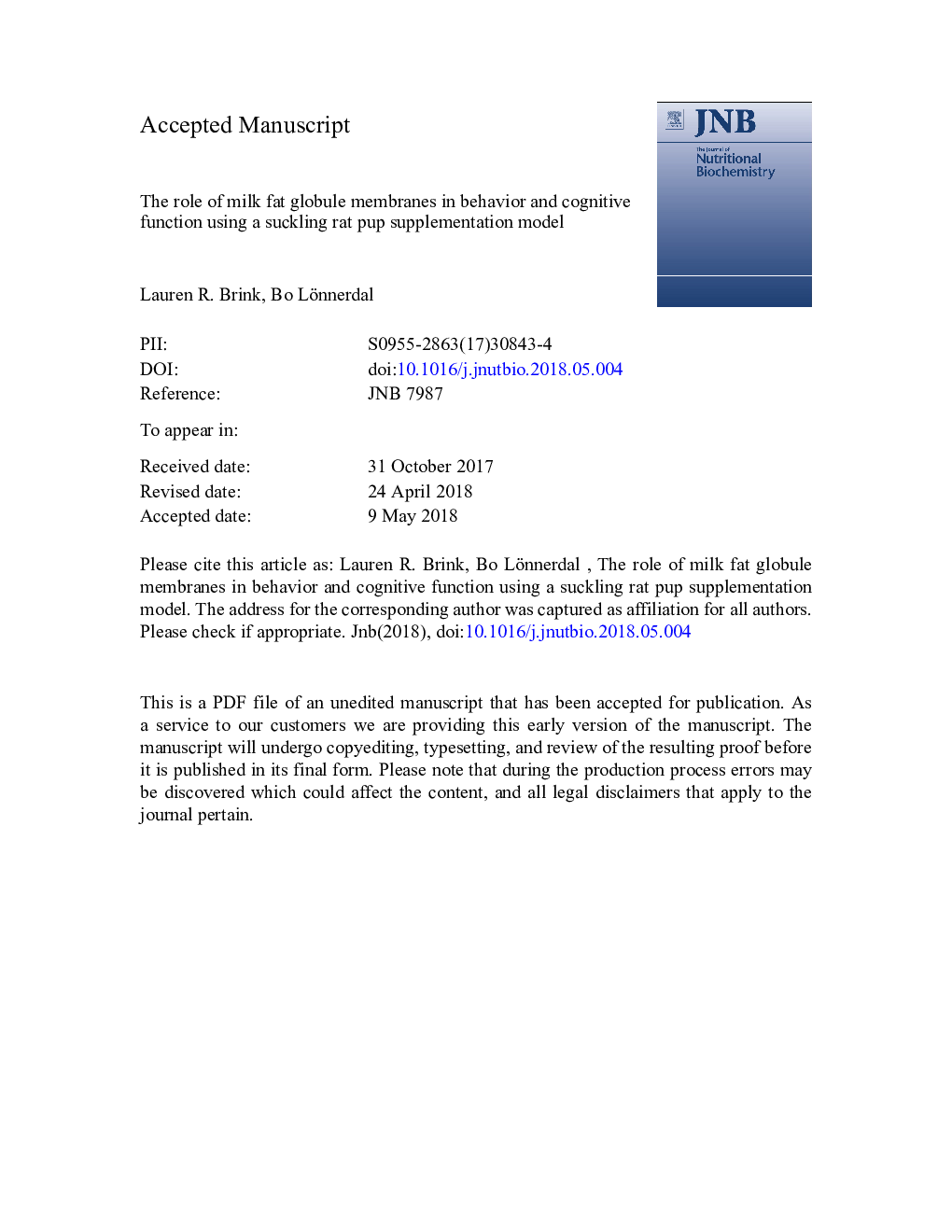| Article ID | Journal | Published Year | Pages | File Type |
|---|---|---|---|---|
| 8336309 | The Journal of Nutritional Biochemistry | 2018 | 29 Pages |
Abstract
Milk fat globule membranes (MFGM) surround droplets delivering lipids to the breast-fed infant and are enriched with glycoproteins upon exocytosis out of the mammary cell. MFGM is typically removed during processing of cow milk for the manufacture of infant formula. Recent clinical trials have found that formula supplemented with bovine MFGM improved cognition. Here, we aimed to explore the mechanisms behind this improved developmental outcome. Sprague-Dawley rats were bred, and their litters were manipulated to either 10 pups to represent normal growth (N) or 16 pups to represent restricted growth (R) per dam. From postnatal day (PD) 2, pups were supplemented daily by oral gavage with MFGM or nonfat milk (NFM, control) at 100 mg/kg body weight. Pups were supplemented until PD13 and killed or supplemented until PD21 and then later exposed to cognitive testing (T-maze and passive avoidance). R NFM-supplemented female rats had lower T-maze scores than the N NFM females. The R MFGM-supplemented animals, however, did not show lower cognitive scores. Restricted growth and treatment affected the passive avoidance test scores. At PD14, MFGM was shown to increase mRNA expression of genes involved in brain function in both N and R animals, including brain-derived neurotrophic factor [1.51-fold change (fc) N, 1.36 fc R] and St8 alpha-N-acetyl-neuraminide alpha-2,8-sialytransferase 4 (1.62 fc N) (P<.01). Our findings suggest that MFGM plays a role in later cognitive development by early up-regulation of genes involved in brain function.
Related Topics
Life Sciences
Biochemistry, Genetics and Molecular Biology
Biochemistry
Authors
Lauren R. Brink, Bo Lönnerdal,
